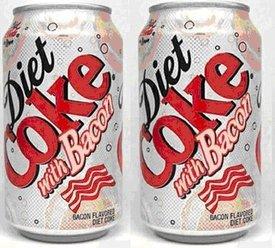New York Times op-ed recommends low carb for diabetes!

KetoGirl_ZC
Posts: 48 Member
Thanks to @camtosh share on sugar, I've been surfing the NYT and found this recent opinion article.
It's not only interesting reading as it has links to lots of good resources. It's not yet editorial but an op-ed is a step in a good direction! And maybe it will help a few overweight/diabetic readers question their doctors advice and avoid yet another insane surgery "solution".

Complete article: nyti.ms/2c1TA2i
::flowerforyou::
It's not only interesting reading as it has links to lots of good resources. It's not yet editorial but an op-ed is a step in a good direction! And maybe it will help a few overweight/diabetic readers question their doctors advice and avoid yet another insane surgery "solution".

Complete article: nyti.ms/2c1TA2i
::flowerforyou::
17
Replies
-
Love! Posted on fb!0
-
My only problem with it is that it states the person doesn't make ENOUGH insulin... and NEEDS more...
I've talked to people that think this is true and also think it's irreversible and even some that think they get T1D at some future point when they make no insulin at all.
So many people don't even know that their bodies make too much insulin because their cells don't respond to it.
The education on how it even works is shameful.8 -
Sunny_Bunny_ wrote: »My only problem with it is that it states the person doesn't make ENOUGH insulin... and NEEDS more...
I've talked to people that think this is true and also think it's irreversible and even some that think they get T1D at some future point when they make no insulin at all.
So many people don't even know that their bodies make too much insulin because their cells don't respond to it.
The education on how it even works is shameful.
So true.
::flowerforyou::0 -
It's working its way out there. Hopefully, the tide will turn soon.0
-
Awesome article. I have added to my list of links I am keeping. In my efforts to kick diabetes *kitten*, my woe has changed quite a bit. I know the changes have been hard on my wife (vegetarian) when it was already odd at our mealtimes as I have always been a big meat eater. She is also not nearly as scientifically minded as me, so articles like this are helpful for me to show her so she can see something in easy to read language that assures her I am not out of my mind.2
-
Thanks for sharing! I posted it to my facebook group too.0
-
The NYT also carried this:
http://www.nytimes.com/2016/09/13/well/eat/how-the-sugar-industry-shifted-blame-to-fat.html
The documents show that a trade group called the Sugar Research Foundation, known today as the Sugar Association, paid three Harvard scientists the equivalent of about $50,000 in today’s dollars to publish a 1967 review of research on sugar, fat and heart disease. The studies used in the review were handpicked by the sugar group, and the article, which was published in the prestigious New England Journal of Medicine, minimized the link between sugar and heart health and cast aspersions on the role of saturated fat.2 -
The NYT also carried this:
http://www.nytimes.com/2016/09/13/well/eat/how-the-sugar-industry-shifted-blame-to-fat.html
The documents show that a trade group called the Sugar Research Foundation, known today as the Sugar Association, paid three Harvard scientists the equivalent of about $50,000 in today’s dollars to publish a 1967 review of research on sugar, fat and heart disease. The studies used in the review were handpicked by the sugar group, and the article, which was published in the prestigious New England Journal of Medicine, minimized the link between sugar and heart health and cast aspersions on the role of saturated fat.
That is enough to make a corpse groan.
But it's not as if times have changed all that much....Dr. Walter Willett, chairman of the nutrition department at the Harvard T. H. Chan School of Public Health, said that academic conflict-of-interest rules had changed significantly since the 1960s, but that the industry papers were a reminder of “why research should be supported by public funding rather than depending on industry funding.”
Just yesterday I listened to a defense of a paper supporting the conclusion that alternative fuels are really not carbon-neutral. The guy's research had been funded by a petroleum producers' association.
But it gets worse... The ADA - a tax-exempt charitable organization - has joined the dairy and beef associations in funding at least one study, which the researchers could then claim was an ADA project.
God forbid we have fewer shekels to spend on entertainment and logo-bearing sports togs after paying microscopically higher taxes to fund research projects with public money. (Not that public funding doesn't have its own obstacle courses, of course.... )0 -
It is amazing that low carb would not be intuitive for diabetes.
6 -
Working2BLean wrote: »It is amazing that low carb would not be intuitive for diabetes.
Bingo!
Just as not drinking (even in "moderation") is intuitive therapy for alcoholism.
(Of course, it took me >10 yrs to try VLCHF , so who the *puppy* am I to be flapping my gums..... ) 4
, so who the *puppy* am I to be flapping my gums..... ) 4 -
I read this and other articles about the sugar scandal in The Guardian. Honestly, misbehaviour like this among medical researchers-- falsifying research data for money -- should be a criminal offense.2
-
KetoGirl_ZC wrote: »Thanks to @camtosh share on sugar, I've been surfing the NYT and found this recent opinion article.
It's not only interesting reading as it has links to lots of good resources. It's not yet editorial but an op-ed is a step in a good direction! And maybe it will help a few overweight/diabetic readers question their doctors advice and avoid yet another insane surgery "solution".
Complete article: nyti.ms/2c1TA2i
::flowerforyou::
That article was written by Dr. Sarah Hallberg and Osama Hamdy. This video of Dr. Hallberg is one of my favorites: https://www.youtube.com/watch?v=da1vvigy5tQ 3
https://www.youtube.com/watch?v=da1vvigy5tQ 3 -
<spike>0
-
<Milligan>1
-
<Lee>
<Jonze>2 -
<D'Ball>0
This discussion has been closed.










